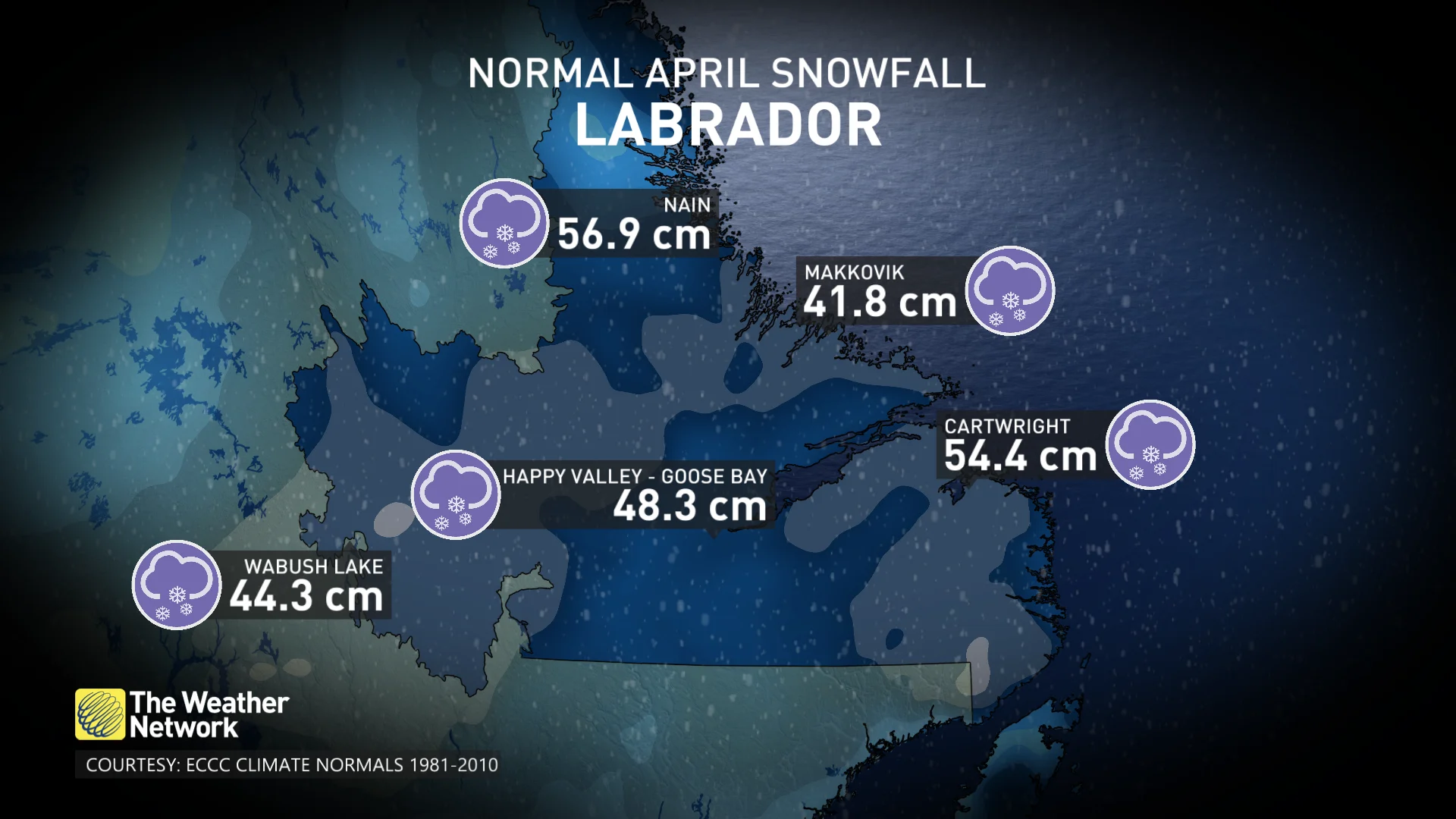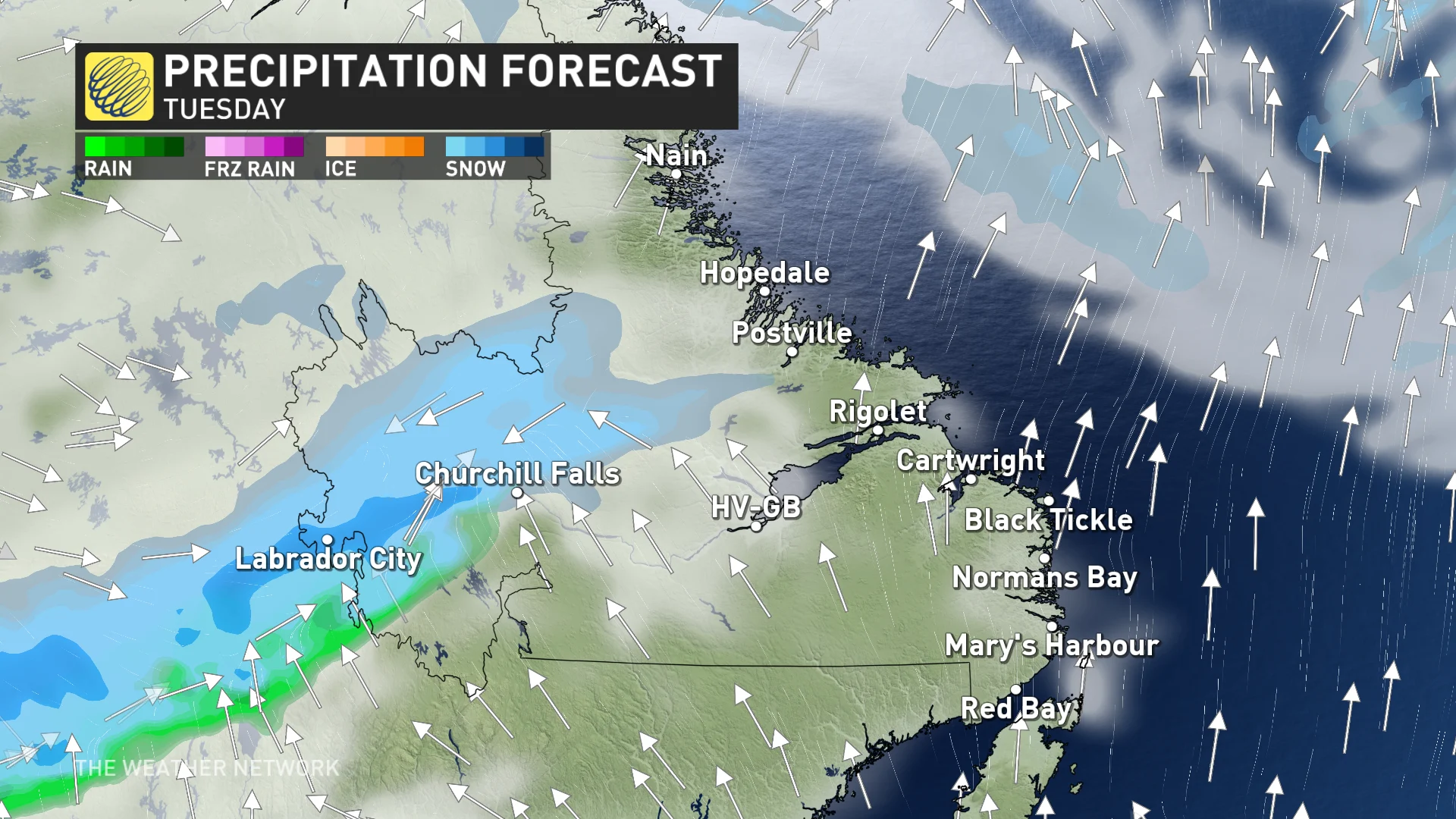News
ANALYSIS: 3 pages, 520 days of delay, and Canada’s busted access-to-information system – Globalnews.ca
It ought to have been a simple request.
Filed electronically, the access-to-information request asked the department of Global Affairs Canada (GAC) for a memo, identified not only by title but also by the departmental tracking number GAC uses, that described a program to provide foreign diplomats hosted tours of Canada’s Arctic territories.
The memo should have been easy to find, easy to process, and easy to release.
But GAC’s system for responding to access-to-information is so broken that this request, which produced a three-page memo in which not a single word was blacked out by government censors, took 520 days or nearly 18 months to process.
The pandemic has made things worse but GAC was failing its legal obligations to provide requested records within 30 days long before the pandemic. For example:
- As of Wednesday, it has been 836 days and counting since a request was made in August 2019 — months before the pandemic hit — for a briefing book then trade minister Jim Carr used to prepare for meetings in Chile with other trade ministers. Not a single page has yet been released.
- It took 550 days to release a 10-page briefing note prepared for then foreign minister Chrystia Freeland ahead of a May 2019 phone call she had with her Mexican counterpart.
- It took 513 days to release a briefing book then foreign minister Francois-Philippe Champagne took with him to a G20 meeting in November 2019.
- It took 330 days to release a heavily censored eight-page memo, requested in June 2020 describing how China was dealing with plastic pollution.
- Another request for records made in February 2020 was just released to Global News, after more than 18 months. It contained details of important developments in Canada’s continuing deliberations over whether to allow gear made by China’s Huawei on Canadian networks.
There are dozens more examples in which records that were requested from GAC by document number and title, which should be released in 30 days or less, routinely take 200 days or more to process.
On Monday, Global News emailed the office of the new Foreign Affairs Minister, Melanie Joly, to ask if she thought this standard of performance was acceptable. Her office acknowledged the request for comment but did not provide a response.
GAC may be one of the worst offenders but it is not the only one. Long delays in defiance of the timelines laid down in law in the Access to Information Act are routine for requests filed to the departments of National Defence, the RCMP, Statistics Canada, Crown-Indigenous Relations, and so on.
The Trudeau government came into office in 2015 promising to fix the access-to-information system, a process used each year not just by journalists but by tens of thousands of researchers, not-for-profit groups, businesses and everyday Canadians. It is a key tool for transparency and accountability. And yet, a system already notorious for delays at the end of the Harper era is worse now after six years of the Trudeau government.
Read more:
NDP seeks probe into 2017 ‘illegal’ access-to-information interference by Trudeau cabinet minister
Still, Mona Fortier, the new president of the Treasury Board, vows to fix it. In an email, a spokesperson for Fortier said reviews are underway to improve access-to-information performance across all government departments. The Treasury Board Secretariat is the government department that provides rules and manuals to all government departments when it comes to the interpretation and administration of the ATI Act.
Her first task may be to undo the damage caused by the pandemic.
When the pandemic first impacted government institutions in early 2020, none of the employees who work in government access-to-information shops were deemed essential workers and so, like all non-essential federal government workers, they were sent home. But the computer systems they need to process ATI requests are often on secure networks accessible only from within their workplace.
And so the ATI system ground to a halt. Again, that was early in 2020. And while many, if not most, government employees have been able to return to their offices for months, departments continue to use the pandemic as an excuse to delay the release of records even though federal Information Commissioner Caroline Maynard, an independent officer of Parliament, ruled early on in that the pandemic cannot be used as an excuse to delay the production of requested records.
“The right of access, a quasi-constitutional right, cannot be suspended because of the pandemic,” Maynard told MPs on the House of Commons Standing Committee on Government Operations and Estimates last February. “Government transparency is the foundation of a strong democracy and has never been more important than during this crisis.”

Fortier, the Treasury Board president, agrees with Maynard.
“Responding to ATI and personal information requests is a legal obligation for all institutions. The Access to Information Act does not allow for institutions to delay responding to access to information requests because of a pandemic or other emergency,” Isabella Brisson, the press secretary to Fortier, said in an e-mail statement Tuesday.
And yet, the online portal where any Canadian can file a request for records continues to post a warning at the top of the site about “possible delays treating your request” because of “exceptional measures” taken to deal with COVID-19.
This screenshot, taken Dec. 1, 2021, of the federal government’s portal to file access-to-information requests, continues to warn of possible delays in responding to requests.
Global News
And when departments receive a request, a standard acknowledgement letter is issued within a few days and those acknowledgement letters have, for nearly 18 months, also contained routine warnings of delays due to COVID-19.
“Considering the importance of the right of access to information, which is a quasi-constitutional right, and the period that has elapsed since the beginning of the pandemic, one would expect that institutions would have had time to adjust their operations to the new reality and that such warnings should not still be used as a boilerplate excuse from institutions,” Laurence Crête, a spokesperson for Commissioner Maynard, said in an email this week.
Back at Global Affairs Canada, a departmental spokesman, John Babcock, acknowledged the significant backlog in ATI operations caused by the pandemic but said the department had implemented new electronic processes to allow employees working from home to access requested documents. He said there is an expectation the department will be able to improve its compliance rate.
Brisson, in Fortier’s office, said memos would be going out soon to all government departments directing each minister and deputy minister to “have a plan in place to address ATI and personal information request backlogs and to fully meet legal obligations going forward.”
David Akin is the chief political correspondent for Global News.
© 2021 Global News, a division of Corus Entertainment Inc.
News
Peel police chief met Sri Lankan officer a court says ‘participated’ in torture – Global News
The head of one of Canada’s largest police forces met with a Sri Lankan inspector general of police who two weeks earlier had been found by the South Asian country’s highest court to have “participated in the torture” of an arrested man.
Photos published by Sri Lankan media, including the Ceylon Today, an English-language daily newspaper, show Peel Regional Police Chief Nishan Duraiappah in uniform posing alongside senior Sri Lankan officers on Dec. 29, 2023 at police headquarters in the capital Colombo – a visit a Peel police spokesperson says Global Affairs Canada and the RCMP had been made aware of ahead of time.
One of the law enforcement officials in the photos was the inspector-general of Sri Lankan police, Deshabandu Tennakoon, who earlier that month was ordered to pay compensation for taking part in “mercilessly” beating a man.
Peel Regional Police Chief Nishan Duraiappah signs a guestbook at Sri Lankan police headquarters in Colombo, as the country’s inspector general Deshabandu Tennakoon stands behind him. Sri Lanka’s Supreme Court found he took part in the torture of an arrested man. (Credit: Ceylon Today).
Ceylon Today
On Dec. 14, 2023, Sri Lanka’s Supreme Court ruled Tennakoon was involved in the brutal arrest of a man suspected of theft, holding him in what the court called the “torture chamber” of the police station for more than 24 hours, striking and suffocating him, and rubbing chili powder on his genitals.
Dr. Thusiyan Nandakumar, a physician who also runs the London, U.K.-based outlet the Tamil Guardian, called it a “stain on Canada’s reputation.”
“To see someone of (Duraiappah’s) stature receive a guard of honour from that very same institution that’s responsible for so many abuses was shocking, to say the least,” Nandakumar said.
Duraiappah declined Global News’ request for an interview. In a statement, a Peel Regional Police spokesperson called his trip to Sri Lanka “personal” and said there is “no ongoing initiative or collaboration between Peel Regional Police and any organization in Sri Lanka.”
Peel Regional Police Chief Nishan Duraiappah wears his uniform and walks by Sri Lankan soldiers in a visit Peel police describe as a “personal” trip. (Credit: Ceylon Today).
Ceylon Today
Duraippah was photographed multiple times during his visit wearing his Peel police uniform.
Rathika Sitsabaiesan – a former NDP MP and Canada’s first Tamil member of Parliament – says when someone wears a uniform, “you’re representing the organization for which you are the chief.”
Duraippah is the only police chief of Sri Lankan descent outside the South Asian nation, according to Peel police, which operates in Mississauga and Brampton, Ont.
“(It’s) very harmful to me as a Canadian, as someone who grew up in the region of Peel, and all the people who continue to live in Peel and who identify as Tamil, in my opinion,” Sitsabaiesan said.
The Peel spokesperson said Duraiappah accepted an invitation from Sri Lankan police officers while he was on a family vacation to the country of his birth.
More on Canada
The spokesperson would not confirm when asked if Duraiappah had met directly with Tennakoon beyond the photos, which show them holding a plaque together and Tennakoon standing behind Duraiappah while he signed a guestbook.
It’s not clear whether the event photographed was the only meeting or whether any additional ones were held, including whether Duraiappah and Tennakoon met outside of the moment they were photographed together.
Another Peel spokesperson added that “the Chief discussed the requests for meetings received with Global Affairs Canada and the RCMP.”
The RCMP says the force provided information to Duraiappah about Tennakoon, including about the recent court ruling, ahead of time.
“The Government of Canada did not organize the visit, which was considered a personal visit. However, given the RCMP’s close working relationship with Peel Regional Police, the RCMP Liaison Officer for Sri Lanka offered to facilitate Chief Duraiappah with arrangements involving police agencies in Sri Lanka,” an RCMP spokesperson said in response to questions from Global News.
“Information was provided to Chief Duraiappah for his situational awareness about recent developments in Sri Lanka, including the Sri Lankan Supreme Court’s ruling on Chief Tennakoon.”
Global Affairs Canada also said the visit was “personal.”
“The Government of Canada did not organize the visit” and “as is customary for meetings with high-level officials, staff from the High Commission of Canada to Sri Lanka accompanied the Chief as a courtesy,” Global Affairs Canada spokesperson Marilyn Guèvremont said.
Sitsabaiesan says “alarm bells should have gone off” given the country’s human rights record.
In October 2022, Canada adopted a United Nations Human Rights Council resolution calling on Sri Lanka to address the “human rights, economic and political crises” in the country.
The following year it sanctioned four government officials for “human rights violations on the island” and commemorated the Tamil Genocide Remembrance Day for the first time – marking the deaths of tens of thousands of Tamils during the country’s 26-year civil war.
“Canada is well-versed in the crimes that took place. It’s not something that Ottawa is blind to,” Nandakumar said.
While it’s not unusual for western officers to visit, collaborate or train police forces in developing countries, some have recently distanced themselves from Sri Lankan authorities.
In 2021, Scotland ended its training program for officers in the country over allegations of human rights abuses.
In January of this year, the United Nations criticized Sri Lankan police for their “heavy handed” anti-drug crackdown, with reports of arbitrary arrests, torture and public strip searches.
Tennakoon’s recent appointment as police chief shows “much about how law enforcement authorities in the island operate with impunity,” Neil DeVotta, an expert on South Asia and politics professor at Wake Forest University in North Carolina, said in an e-mail to Global News.
Nandakumar says the Peel chief’s visit to the Sri Lankan police headquarters raises questions about judgement.
“When a senior Canadian official goes to meet with forces accused of such egregious crimes … to see something like that take place, it was very disconcerting.”
“I think an apology is needed,” he said.
News
Body believed to be missing B.C. kayaker found in U.S., RCMP say – CBC.ca


The RCMP say a body that was recovered by authorities in Washington state is believed to be one of two kayakers reported missing off Vancouver Island on Saturday.
Const. Alex Bérubé said the identity of the body found on San Juan Island, just south of the border, is still to be confirmed by the coroner.
A search has been underway in the waters off Sidney, B.C., about 25 kilometres north of Victoria, since the two kayakers were reported missing.
RCMP previously said Daniel MacAlpine, 36, and Nicolas West, 26, went missing while kayaking from D’Arcy Island to View Beach on Saturday afternoon. They were in a teal blue, fibreglass, two-person kayak.
Police said members of the Central Saanich Police Department and Peninsula Emergency Measures Organization search and rescue were involved in the search, and the Joint Rescue Co-ordination Centre and Canadian Coast Guard were also assisting.
News
Some Canadians will be digging out of 25+ cm of snow by Friday – The Weather Network
Digital WritersThe Weather Network


Prepare for multiple rounds of April snowfall this week, as Labrador braces for wintry conditions. This onslaught of snow is expected to blanket the region, potentially leading to hazardous travel conditions and disruptions throughout the week
As we march even deeper into the heart of the spring season, many parts of Canada are finding it tough to find any consistent signs of warming weather. Add to the mix periods of snow and wintry precipitation, and it’s safe to say the winter season is certainly not going out without a strong fight.
This week, parts of the East Coast will bear the brunt of the winter weather, with multiple rounds of April snowfall stacking up in Labrador. The chances for snow flurries will stick around all week long, bringing as much as 25 cm for some.
MUST SEE: Extreme pattern over Arctic produces 50+ degree temperature spread
Although 25+ cm of snow in April may seem extreme, for this part of the country, it’s definitely nothing out of the ordinary. In fact, the month as a whole brings about 40-50 cm of snow to Labrador on average.


Some communities, including Nain, even have snowfall chances stretch all the way into June!
“This week will be a little bit different however, as some regions could reach about half of Labrador’s monthly averages alone,” says Rachel Modestino, a meteorologist at The Weather Network. “The first round on Tuesday will pack quite the punch, with heavy snow and gusty winds stretching from Labrador city to the coast.”


Winds will be gusting between 70-90 km/h at times, and travel conditions will likely deteriorate quickly due to potential whiteouts and reduced visibility.
-



 Health23 hours ago
Health23 hours agoSee how chicken farmers are trying to stop the spread of bird flu – Fox 46 Charlotte
-



 Science21 hours ago
Science21 hours agoOsoyoos commuters invited to celebrate Earth Day with the Leg Day challenge – Oliver/Osoyoos News – Castanet.net
-



 Politics21 hours ago
Politics21 hours agoHaberman on why David Pecker testifying is ‘fundamentally different’ – CNN
-
News21 hours ago
Freeland defends budget measures, as premiers push back on federal involvement – CBC News
-
Economy21 hours ago
The Fed's Forecasting Method Looks Increasingly Outdated as Bernanke Pitches an Alternative – Bloomberg
-
Business20 hours ago
Gildan replacing five directors ahead of AGM, will back two Browning West nominees – Yahoo Canada Finance
-



 Health20 hours ago
Health20 hours agoIt's possible to rely on plant proteins without sacrificing training gains, new studies say – The Globe and Mail
-



 Tech20 hours ago
Tech20 hours agoMeta Expands VR Operating System to Third-Party Hardware Makers – MacRumors









